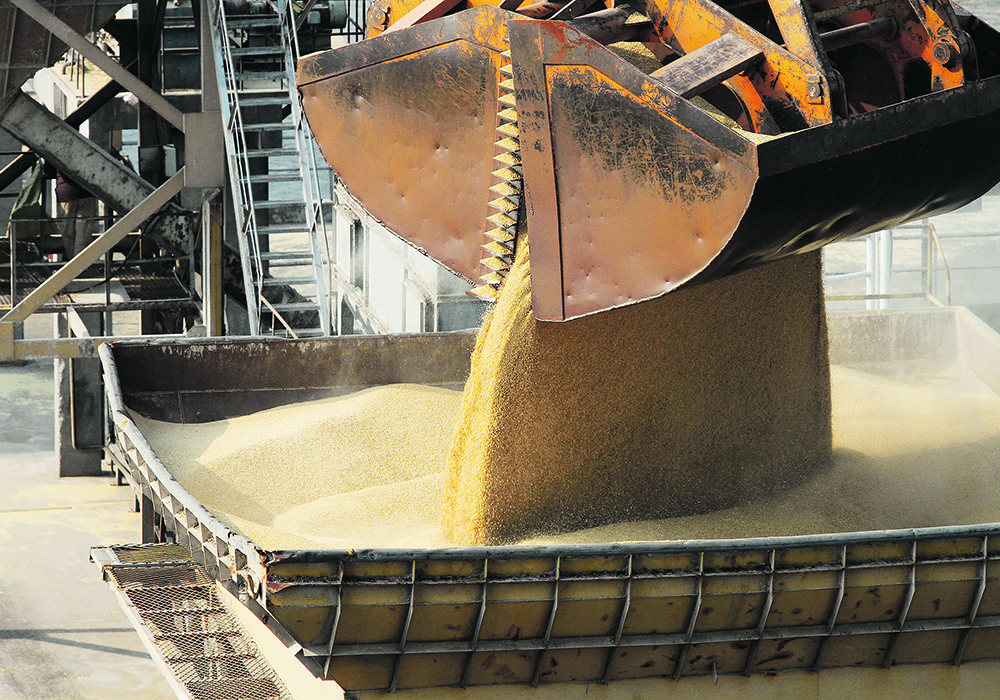SASKATOON — Russia is spearheading efforts to establish an OPEC of the grain trade, but industry officials in North America doubt it will happen or that it will have much influence if it does.
Russia is urging the BRICS trade alliance to form an inter-bloc grain exchange, according to an article published by World Grain.
“The officially declared purpose of the alliance is to facilitate trade between member states, but analysts warn that the new structure will aim to become an analogue of the Organization of the Petroleum Exporting Countries (OPEC) for the global grain market, with the goal of influencing free pricing,” stated the article.
Read Also

Genesis Fertilizers seeks government funding
Genesis Fertilizers is actively seeking funding from government and a strategic partner. The company dispelled a rumour that DL E&C has abandoned the project.
BRICS is a trade alliance comprising Brazil, Russia, India, China, South Africa, Egypt, Ethiopia, Iran and the United Arab Emirates.
The founding countries of Brazil, Russia, India and China have been meeting annually to coordinate multilateral policies since 2009, with other countries joining along the way, according to Wikipedia.
The grain exchange proposal was first tabled by the Russian Union of Grain Exporters (RUGE) in December 2023 but didn’t gain traction until March when the idea was endorsed by Russian President Vladimir Putin, stated the World Grain article.
Putin said it was a good idea and promised to work on it at the top level of government.
“All benchmark (grain) prices are set in the U.S. and Europe, for example in Paris,” Putin said during a meeting with Russian farmers, according to World Grain.
“How much grain do the French produce? I think less than we do. And still, according to tradition, benchmark prices are formed out there.”
Michael Harvey, executive director of the Canadian Agri-Food Trade Alliance and a former Canadian diplomat in Brazil, has doubts the grain exchange will ever come to fruition.
“BRICS members are not aligned on very many issues, and it is not easy to see how they could come to a common position on international grain markets,” he said.
“For the Russians, simply putting the question on the agenda is a win in itself, but that doesn’t mean they’ll come to an agreement.”
Vince Peterson, president of U.S. Wheat Associates, said he would be surprised if the proposed exchange sees the light of day.
“There’s a lot of reasons why I’m not overly worried about it. I’m pretty skeptical whether anything gets off the ground.”
Peterson said it would be more of a wheat exchange than a grain exchange because Russia is driving the bus. Putin is interested in nationalizing grain handling companies and manipulating wheat markets with export quotas and taxes.
That would be at odds with the major wheat importers in the bloc, such as Egypt and Brazil.
“There are some just diametrically opposed points of view,” he said.
“You can’t imagine the Egyptians having the same point of view about setting supplies and prices as what Vladimir Putin has. Those would be on opposite ends of the scale.”
Peterson is puzzled by the notion that a grain exchange would somehow become an OPEC-like tool for restricting grain supplies and influencing prices.
“It’s not a price-setting mechanism, it’s a price discovery mechanism,” he said.
And he chuckled at the notion of Russia, India and China working together on such an initiative.
“You’ve got three of the most egregious players in terms of manipulating markets thinking they’re all going to be part of some international free-flowing marketplace? That’s a pretty big concept to bite off.”
But the World Grain article said RUGE expects the BRICS grain exchange to be operational by October.
BRICS countries account for 42 percent of world grain production and 40 percent of global consumption, according to the article.
Russia and Brazil would be the main beneficiaries of the exchange because they are both major grain exporters.
“In Russia, the BRICS grain exchange is seen as a way to challenge the Western world order, just like the OPEC set up in the 1960s challenged the oligopoly of the Anglo-American oil firms,” stated the article.
It also noted the exchange could help facilitate a recent $26 billion contract Russian grain company Food Export Trade signed to supply China with 70 million tonnes of grain, legumes and oilseeds over the next 12 years.
It could keep Russian grain exports flowing when there are Western sanctions aimed at restricting trade.
Peterson said Russian grain doesn’t appear to be having much trouble finding its way to international markets. It is the main reason wheat prices have stayed in check this year.
He noted that BRICS countries are not big importers of North American grain, which tends to flow within the Americas or to Pacific markets. The BRICS group accounts for a mere eight or nine percent of U.S. wheat exports.
“I’m highly skeptical that this really affects the global trade very much,” he said. “I just don’t see it being a big deal. I’d be surprised.”
















